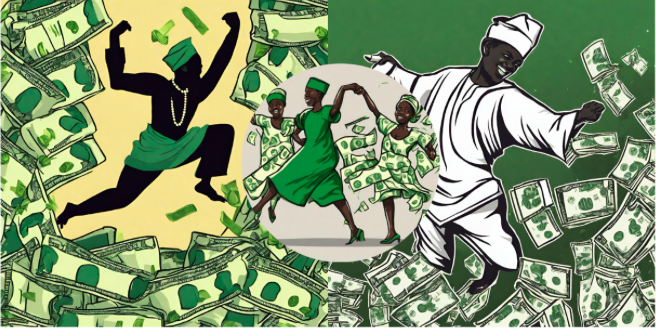
Ah, the naira. A familiar companion with an occasionally surprising rhythm. As Nigerians, we are intimately familiar with this dance. Some days it dances against the dollar, gaining value, while others it falls, leaving us wondering if it will ever rise again. This constant movement prompts the question: where do we keep our hard-earned money? Naira or something more stable, such as the mighty dollar?
Let’s grab some Agege bread and discuss this financial dilemma. Imagine yourself years from now, enjoying retirement. The dream, right? But that dream necessitates preparation, and saving is essential. But where do you place your nest egg?
Saving in Naira:
- Familiarity: You know the system, the fees, and the access. No need for complex conversions or foreign bank accounts.
- Supporting the Nation: Your savings contribute to the local economy, potentially aiding growth and stability.
- Interest Rates: Depending on the account, Naira savings can offer competitive interest rates, potentially outpacing inflation. ( with the right financial institutions o )
But the Naira’s dance can be a double-edged sword. Inflation can erode your purchasing power, and currency depreciation can make your saved Naira worth less in the future. Imagine saving for retirement for several decades just to find out the future value of your years of saving is now equated to a week’s worth of spending.🤦
Now, let’s peek over the fence. Saving in foreign currencies, like the dollar, can offer a perceived haven of stability. Currencies like the dollar have a longer track record of holding their value against inflation, potentially protecting your nest egg better.
Saving in Foreign Currency:
- Stability: The dollar, for example, is a relatively stable currency, offering a hedge against inflation and depreciation.
- Diversification: Spreading your savings across currencies reduces risk and exposure to one economy’s fluctuations.
- International Access: Foreign currency savings can be handy for travel, education abroad, or investments.
However, foreign accounts can come with fees, conversion costs, and potential tax implications. Additionally, you’re essentially betting on the stability of another country’s economy.
The Verdict? It’s Not Black and White:
The truth is, there’s no one-size-fits-all answer. The best approach depends on your circumstances, risk tolerance, and financial goals. Consider these factors:
- Time Horizon: Short-term savings might be better suited for Naira, while long-term goals might benefit from foreign currency diversification.
- Risk Tolerance: If stability is paramount, foreign currency might be more appealing. If you’re comfortable with some risk, Naira could offer higher potential returns.
- Investment Goals: Are you saving for retirement, a child’s education, or a dream vacation? Each goal might have different currency needs.
Remember, you don’t have to choose just one: A balanced approach might involve saving a portion in Naira for daily needs and emergencies while allocating another portion to foreign currency for long-term goals.
So, dear reader, the Naira’s dance continues. But don’t let it lead your financial decisions by the nose. Educate yourself, assess your needs, and make informed choices. Remember, your financial well-being is in your hands, Naira or dollar. Now, let’s get out there and make those dreams a reality, one wise saving decision at a time!
But just out of curiosity which of these dancers will win this dance, who are you betting on? And what are your biggest concerns about saving in Nigeria?
